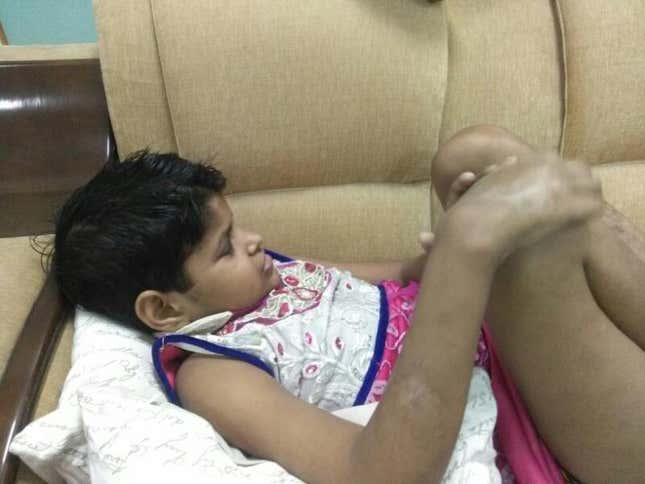This is a developing story.
Over a century after Rudyard Kipling’s The Jungle Book was released, the idea of a child growing up among wild animals, bereft of human contact, still captivates people around the world.
So, when villagers in India’s Uttar Pradesh state discovered a little girl walking on all fours and communicating in screeches amid a group of monkeys in the forest of the Katarniaghat wildlife sanctuary, the story captured national and international attention.
The police admitted the girl, initially believed to be between eight and 12 years old, to a hospital in January. Last week, local and foreign media even dubbed her the “Mowgli girl,” quoting police and medical staff who said she had been living in the forest among monkeys for many years.

However, that story has begun unravelling.
Authorities now say the girl, named Ehsaas by them and moved to a shelter in Lucknow, couldn’t have lived in the wild undetected for so long.
“It’s not possible that a girl spends years in the forest and no staff or (the) 100s of cameras installed for security and animal census notice her,” divisional forest officer Gyan Praksh Singh told the Hindustan Times. “She might have been dropped here sometime before being spotted by the patrol team.”
The reality of the story is much darker: Reports suggest Ehsaas may have been abandoned by her family, perhaps due to her mental disability or, even worse, simply for being a girl.
“I think the family members of this girl had been aware that she is not able to speak, and they may have abandoned her near the forest road,” Singh told the Guardian. “It is clear from first-time view, if you see the girl, that she is only eight or nine years old, but her facial expressions show that she is disabled, not only mentally but also physically,” he added.
In India, where female foetocide is rampant, a disability or handicap is an added burden on the girl child. Parents struggling to make ends meet and unable to see her value often look to divest themselves of her responsibility.
The search is on for Ehsaas’s parents. One man claiming to be her uncle reportedly paid her a visit at the shelter, but authorities are unconvinced by his claims.
Ehsaas, meanwhile, is said to be content and gaining strength in her new home, a world away from the wild.
